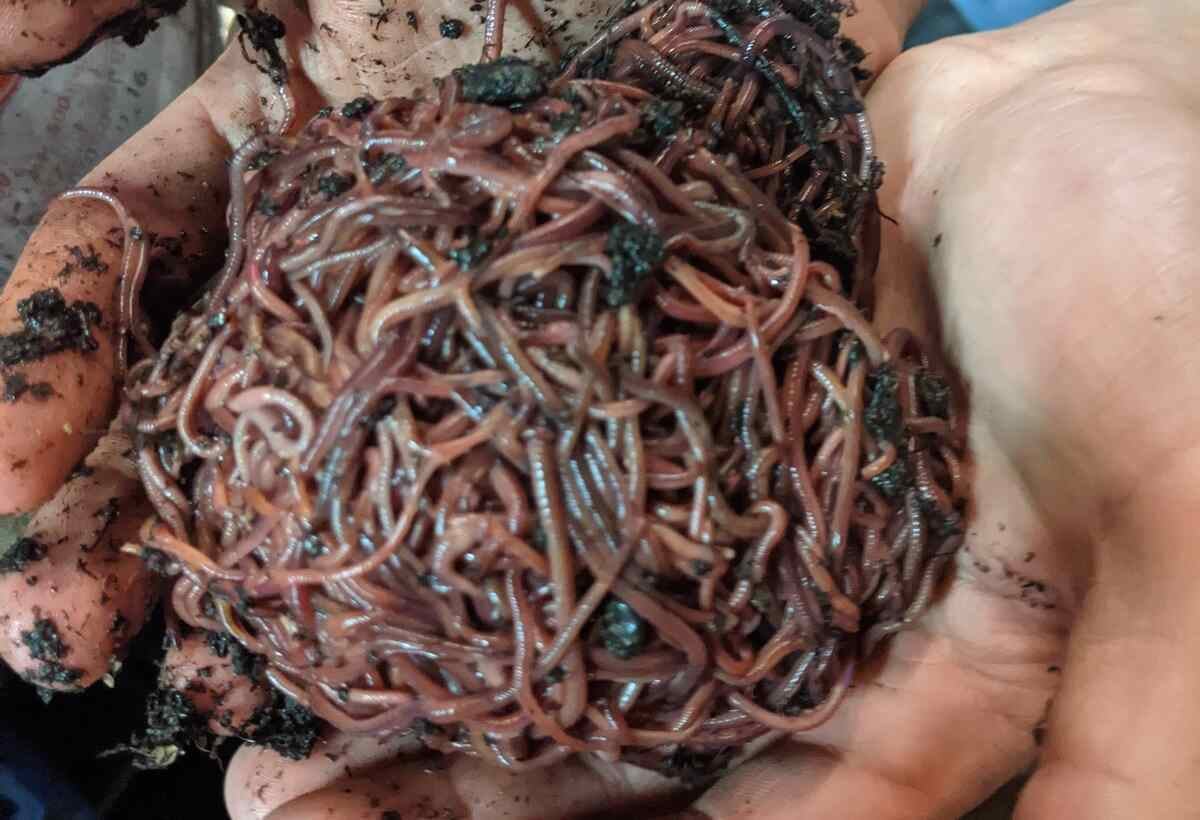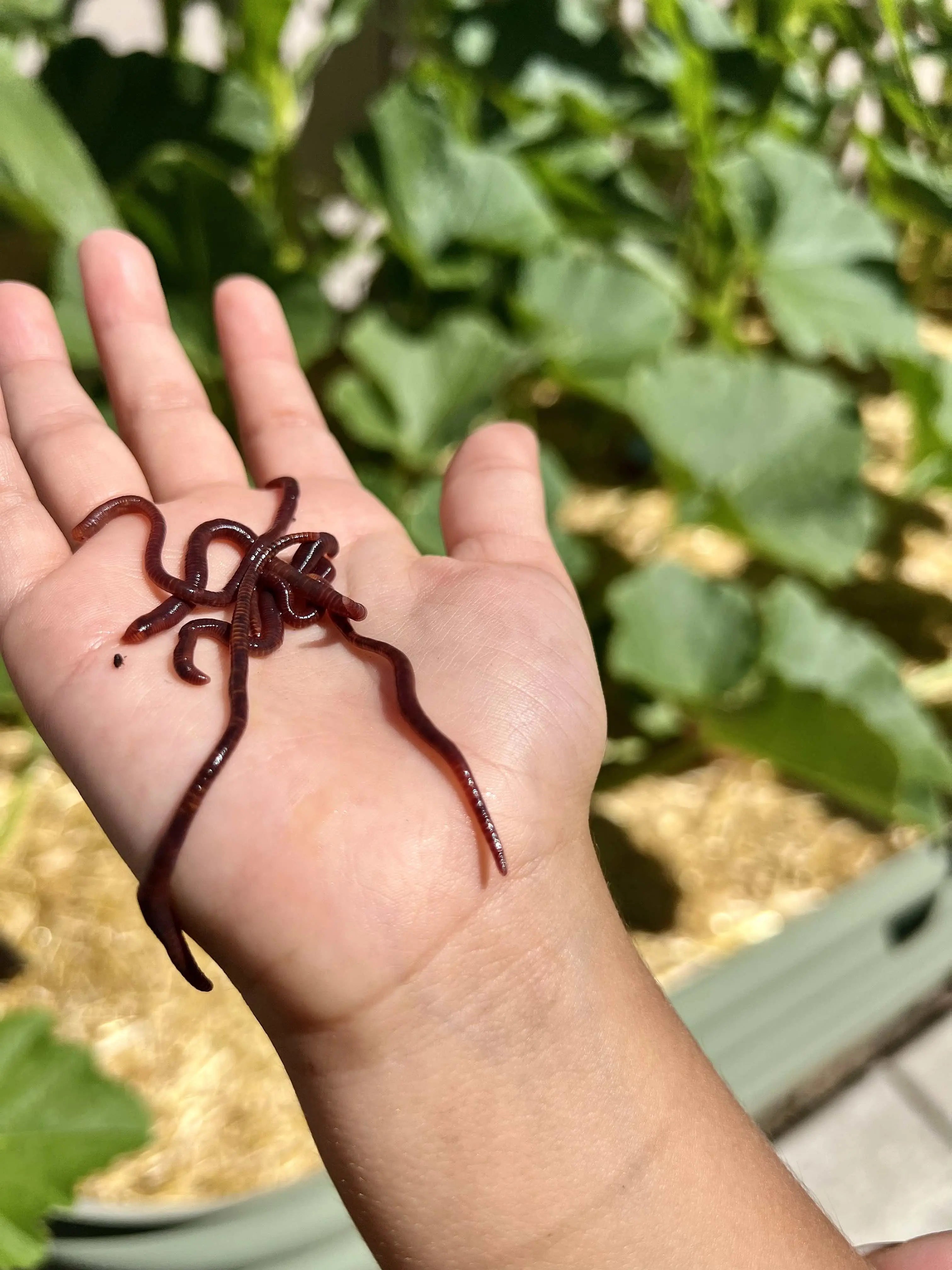Red Wiggler Worms Demystified: Opening the Secrets of Vermiculture for Greener Living and Nutrient-Rich Dirt
In the world of lasting methods for improving soil quality and advertising eco-conscious living, red wiggler worms play a critical yet usually neglected function. Red Wiggler Worms. Comprehending the complexities of caring for these worms, enhancing their setting, and utilizing their castings can lead to a greener way of living and healthier dirt for plants to thrive.
The Function of Red Wiggler Worms
Red Wiggler worms play a crucial duty in composting systems by efficiently breaking down raw material right into nutrient-rich spreadings. These starved eaters consume a range of natural materials, such as kitchen scraps, backyard waste, and paper items. As they feed, the worms' digestive processes damage down the raw material into a fine, dark, and nutrient-dense material referred to as worm spreadings or vermicompost.
The castings generated by Red Wiggler worms are extremely useful for dirt health and plant growth. They are rich in essential nutrients like potassium, phosphorus, and nitrogen, which are vital for sustaining healthy plant growth. In addition, worm castings consist of advantageous microorganisms and enzymes that help improve dirt framework, rise water retention, and improve nutrient uptake by plants.
Advantages of Vermicomposting

Furthermore, vermicompost, the nutrient-rich output of vermicomposting, works as an outstanding organic plant food and soil conditioner. It improves dirt structure, enhances soil aeration, and raises dirt dampness retention. These homes contribute to healthier plants with stronger root systems and much better resistance to insects and illness. Vermicompost likewise enriches the dirt with important nutrients like nitrogen, phosphorus, and potassium, advertising plant development and general soil fertility.
Additionally, vermicomposting supports lasting horticulture methods by giving a natural and chemical-free alternative to synthetic plant foods. Red Wiggler Worms. This eco friendly method not only enriches the soil however likewise helps in reducing dependence on hazardous chemicals, promoting a greener and much more sustainable way of gardening
Setting Up a Worm Container
When developing a worm bin for vermicomposting, correct configuration is essential to ensure the success of the composting process. The initial action in establishing a worm container is choosing an you could try here ideal container. This can be a plastic bin or wood box that provides enough space for the worms to move and has proper water drainage openings to stop waterlogging. Next off, a bed linen product such as shredded paper, cardboard, or coconut coir should be added to the container. This bedding offers a comfy atmosphere for the worms and assists preserve moisture degrees.
After adding the bedding, introduce the red wiggler worms to the bin. The worms should then be given with food scraps such as fruit and veggie peels, coffee premises, and eggshells.
Consistently monitor the moisture levels and temperature in the worm bin to ensure ideal problems for the worms. With correct setup and maintenance, the worm bin will properly convert natural waste into nutrient-rich compost for your plants and garden.
Gathering Worm Castings
To successfully collect nutrient-rich worm castings from your vermicomposting system, a methodical harvesting method is vital. When it comes time to gather the worm castings, there are a few key steps to follow to guarantee an effective procedure.

Troubleshooting Common Issues
Identifying and attending to usual obstacles that might develop during the vermicomposting process is important for preserving a healthy and balanced and effective worm bin. One common concern that vermicomposters experience is overfeeding. Adding excess food scraps can bring about a build-up of dampness and acidity in the worm bin, possibly harming the worms. To avoid this, feed the worms in moderation, guaranteeing that the food scraps are effectively broken down before adding pop over to this site a lot more. One more issue is undesirable smells emanating from the worm container. Foul smells indicate anaerobic problems, commonly brought on by overwatering or inadequate air flow. To correct this, adjust the dampness levels by including dry bedding products like shredded newspaper or cardboard and rise aeration by transforming the bed linen on a regular basis.
Additionally, if the worm population is decreasing or the worms appear undesirable, maybe because of environmental stress factors such as severe temperatures or pH levels. Monitoring these aspects and making necessary adjustments is necessary for the wellness of the worms. By troubleshooting these usual issues immediately, vermicomposters can make certain a smooth and successful vermicomposting procedure while keeping a thriving worm population.

Verdict
In verdict, red wiggler worms play an important role in vermiculture by breaking down natural matter into nutrient-rich dirt. Setting up a worm bin is essential for effective vermiculture, and harvesting worm spreadings gives beneficial garden compost for horticulture.
As they feed, the worms' digestive procedures break down the organic matter right into a fine, dark, and nutrient-dense product understood as worm castings or vermicompost.
The spreadings created by Red Wiggler worms are very valuable for dirt health and plant development. Adding excess food scraps can lead to a build-up of wetness and level of acidity in the worm bin, possibly hurting the worms.Additionally, if the worm populace is declining special info or the worms show up unhealthy, it might be due to environmental stress factors such as severe temperature levels or pH degrees. Setting up a worm container is necessary for successful vermiculture, and gathering worm castings offers valuable garden compost for horticulture.